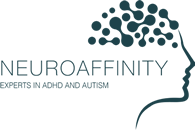Autism is a neurodevelopmental condition that can affect the way a person communicates, socialises, and experiences the world.
But what are the common symptoms of autism, and how do they show up in children, adults, and women?
If you’re wondering whether autism could explain certain behaviours in yourself or someone close to you, recognising the most common (and less obvious) signs can be a first step toward clarity and the support of a professional diagnosis.
What Is Autism and Why Does Recognising the Signs Matter
Autism Spectrum Disorder (ASD) presents differently in everyone.
While some individuals may require significant daily support, others live independently but still face challenges in communication, social interaction, and sensory regulation.
Recognising both the most common symptoms of autism and more subtle traits helps people access support earlier and more effectively.
If you’re unsure whether you or a loved one might be autistic, take our free online autism test to explore further.
5 Common Symptoms of Autism
So, what are the most common symptoms of autism? While experiences vary, these core traits are often present:
1. Social communication difficulties
Holding a conversation can feel confusing or exhausting.
Many autistic individuals may find it difficult to read social cues, understand jokes or sarcasm, or maintain eye contact – things that others might take for granted.
They often prefer honest, direct communication and may express themselves in wonderfully unique ways.
2. Repetitive behaviours and routines
Repeating the same actions or phrases, following a strict daily routine, and repetitive behaviours often serve as a source of comfort.
Disruptions to these routines can feel overwhelming, making consistency a crucial part of daily life.
3. Sensory processing differences
Noises that others barely notice might feel unbearable. Certain fabrics, lights, or smells could be soothing or unbearable.
Autism can amplify the senses or dull them, leading to avoidance or sensory-seeking behaviours that help balance the experience of the world.
4. Highly focused interests
From trains to technology, mythology to mathematics, these interests often go beyond hobbies.
They’re deep passions that offer joy, escape, and even expertise. What may seem like ‘obsession’ to some is often a powerful part of identity and confidence for autistic people.
5. Delayed speech or different communication styles
Some autistic people may speak later than their peers, or not at all.
Others may use rich, advanced vocabulary or communicate through writing, gestures, or devices. It’s not about being less capable, it’s about being wired to communicate differently. When given the right tools and time, autistic voices shine.
If any of these resonate, it might be worth considering a formal autism assessment to understand your or your child’s needs.
Less Common Symptoms of Autism
Some signs of autism are less well known but can be just as impactful:
- Chronic anxiety or post-social exhaustion (autistic burnout
- Monotone voice or unusual rhythm of speech
- Rigid thinking or a strong need for predictability
- Difficulty identifying internal states (interoception)
- Struggles with identity, emotional regulation, or gender expression
These less common symptoms of autism can be especially prevalent in women and girls, often delaying diagnosis. Learn more about how autism presents differently in autistic women and why signs are frequently missed.
How Autism Symptoms Appear in Children
Autism in children can manifest in a range of behaviours and sensitivities. Common signs include:
- Avoiding or struggling with eye contact
- Delayed play or limited use of imagination
- Lack of interest in social interaction or group play
- Behaviours, shutdowns, or extreme reactions to sensory input
- Deep attachment to particular toys, interests, or routines
If these traits are familiar, it may be time to consider a child’s autism assessment. You can also explore our detailed guide on autism in children for more information.
How Autism Symptoms Appear in Adults
Many autistic adults go undiagnosed for years, often masking their symptoms to fit in. Common signs of autism in adults include:
- Feeling “different” or disconnected in social situations
- Exhaustion after socialising or needing long recovery periods
- Preference for solitude or rigid routines
- Difficulty understanding social norms or cues
- Sensory overload in loud, bright, or crowded places
If you’re questioning your own experiences, visit our professional autism assessment for adults to find out more.
Why Is Early Autism Diagnosis So Important?
You might wonder, “Does it really matter to have a diagnosis?” Absolutely. A diagnosis isn’t about labelling – it’s about understanding, acceptance, and access to the right support.
A formal autism diagnosis can help:
- Improve mental health and self-esteem
- Unlock educational or workplace accommodations
- Reduce stress and burnout through self-awareness
- Connect you with the autistic community and resources
Read more about why to consider an autism diagnosis if you’re unsure why to consider an autism diagnosis if you’re unsure whether it’s the right step for you or your loved one.
Take the First Step Today
Autism can be misunderstood, misdiagnosed, or overlooked, but recognising the signs is a powerful beginning.
The earlier you understand how autism affects you or your child, the sooner you can access meaningful support.
At Neuroaffinity, we specialise in supporting adults through every step of the ADHD journey, with expert advice, clarity, and care. If you’re unsure whether to take the next step, browse our Adult ADHD FAQs for clear and reassuring answers.
Or, book an appointment online right now!

Talhah Malik
Dr Talhah Malik is a Consultant Forensic Psychiatrist specialising in ADHD and autism. He leads secure inpatient services, provides medico-legal assessments, and is passionate about evidence-based, person-centred care.


